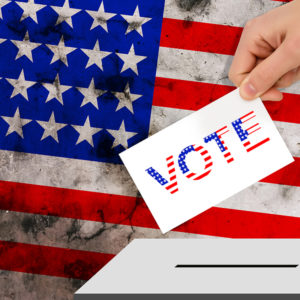If your financial adviser repeatedly gave you stock picks that were off by 200 or 300 percent, and always in the wrong direction, would you keep trusting them with your money?
Then why, political observers are asking, should Americans trust our democratic process to political pollsters.
The final numbers still aren’t in, and with big, blue states like California and New York still sitting on vote counts, it’s all but certain that Joe Biden’s popular vote count will rise. But it’s not going to come close to the nearly nine point Biden victory predicted by the national poll average.
One glaring example is Maine Republican Susan Collins. The three-term Republican’s demise was deemed all but certain, and not without reason. Every poll since February showed her losing to a Democratic challenger, and the final average of polls put her 5.5 percent behind Democrat Sara Gideon. Collins ended up winning by nine points, which means the polling average was off by nearly 15 points. That’s a 300 percent margin of error.
Polling failure is even more profound in Florida, where pollsters have missed three election cycles in a row. And whether it was the race for president, governor or U.S. Senate, the polling errors all went the same way: Democrats predicted to win, but voters backed the Republican.
No wonder people are angry.
“To all the pollsters out there, you have no idea what you’re doing,” said South Carolina Republican Sen. Lindsey Graham after his massive 13-point win over his Democratic challenger. The average of the seven most recent polls gave Graham just a 1.1 percent lead, which inspired Democratic donors to dump $100 million into the race.
If you get your polling information from your local paper, chances are you’re reading the work of pollsters like Quinnipiac and YouGov. On the eve of the election, YouGov predicted Biden would win the popular vote by 10 points. Based on current projections, the real number is likely to be around 3 percent. YouGov was also off by 300 percent. Quinnipiac was even worse, predicting an 11-point Biden win.
If you watch cable TV for political news, you probably see polls from Fox News (Biden +8) or WSJ/NBC (Biden +10).
All of them wrong and, most significantly all wrong in the same direction. A survey of the final 15 major national polls by Ron Faucheux, chief analyst at Certus Insights, found a pro-Biden average error of 360 percent. Not one of the 15 polls had an error in favor of President Trump.
That’s one reason veteran pollster Frank Luntz told Axios on election night as results rolled in: ”The political polling profession is done. This is devastating for my industry.”
Interestingly, the polls that were closest to the actual outcome were those often dismissed by mainstream media outlets as “partisan” or “pro-Republican.”
“I think the problem is far deeper than polling,” said veteran pollster Scott Rasmussen, editor-at-large for Ballotpedia and pollster for PoliticalIQ.com. “It was a failure of the entire election forecasting industry, including election night media coverage.”
The Trafalgar Group, for example, is often dismissed by cable pundits as a partisan outlier despite being the only pollster to accurately predict Trump’s victory in 2016. Days before the 2020 vote, Trafalgar’s Robert Cahaly told InsideSources he was again predicting a Trump win thanks to narrow victories in places like Pennsylvania and Michigan.
It appears Biden won Michigan, but the Trafalgar prediction of a 2.5 percent Trump victory was far closer to the actual results than the FiveThirtyEight average — predicting a nine-point Trump defeat.
Cahaly, a GOP strategist by trade, says he started doing his own polling because the results he was paying for were so consistently wrong. He uses a strategy designed to get responses from fewer high-propensity voters and more typical Americans — people who vote but don’t spend all day watching cable news or scrolling through their Twitter feeds.
As a result, he was one of the pollsters who spotted an uptick in Trump support among people of color, particularly Black men. Trump received a higher percentage of the non-white vote than any GOP presidential candidate since 1960.
The New York Post’s John Podhoretz says it’s time to ignore political polling altogether. He dismisses pollsters’ arguments that their errors are actually just part of the art of polling as “the kind of argle-bargle that phrenologists must have used to dazzle 19th-century smart people into believing you could make important determinations about a person’s character from the bumps on his skull.”
But Kelly McBride, a media ethicist with the Poynter Institute, says the collapse of polling is important because it impacts news reporting which, in turn, affects our political system.
“Polling, like journalism, is a tool that assists in the nation’s democratic checks and balances. If it doesn’t work or it isn’t trusted, democracy itself is weaker,” McBride said.

